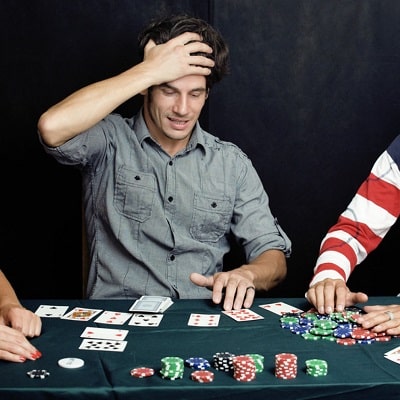
Tilt in poker
Playing poker will not bring income without controlling your own emotions. Every player who has at least once been fond of gambling knows how difficult it is to stop in time or stick to a pre-planned strategy. At some point, a loss happens, and it is inevitable. In pursuit of lost money, a casino poker player begins to raise rates, which causes the loss of the pot. What is tilt, and how to deal with it, will be discussed in detail below.
A little about the term
The concept of “tilt” refers to a suboptimal psychological state that leads to rash decisions. This is the trigger that lowers the controls of the poker game. Factors affecting the occurrence of tilt are different. Usually a beginner is unbalanced by loss, physical fatigue, stress, problems in real life. Interestingly, professional poker players distinguish three types of the game:
- class A – actions at the limit of technical capabilities;
- class B – an average game that goes according to plan;
- class C – game in a state of tilt.
After several unsuccessful distributions, the poker player accumulates irritation and annoyance. If you succumb to negative emotions, then the probability of losing will increase significantly. Hoping to win back, the stakes will inevitably begin to rise, which plays into the hands of opponents. Approximately 90-95% of such cases lead to a bank drain. Sometimes a poker player manages to win back, but this is the result of luck.

Countermeasures
As soon as the til comes, the optimal solution is to stop the game. Casino poker is not going anywhere. For 1-2 days of a break, it will not become different, because the rules have remained unchanged for centuries. Well, if in addition to poker, a person has other hobbies. Then you can kill the excitement with positive emotions from such a hobby. In no case should you go on a rampage when tilting, try to win back or raise the stakes (especially go all-in).
The list of other countermeasures includes:
- exit from the table to the bar or fresh air;
- mental concentration on other objects;
- viewing social networks or videos;
- calm score up to 100.
In general, any means are good against tilt, except for illegal methods. Professional casino poker players develop their own methods of getting out of this psychological state. Each option is individual, depending on the characteristics of the character and interests of the person.
Playing against an opponent on tilt
There may be a poker player at the table who has fallen into tilt. It is easy to define it. This psychological state is indicated by several factors:
- unreasonable sizings;
- nervous sorting of cards in hands;
- very aggressive demeanor;
- inadequate behavior, manifested in irritability.
Opponent tilt is a great opportunity to capitalize if you know how to manage this weakness. Usually such a poker player does not fold anything preflop, bluffs excessively, and correlates widely. A common tactic is to narrow your preflop range, focusing on stronger hands to allow for showdowns. You should not pay attention to the ethical moment, because sitting down at the poker table, each player must be psychologically prepared to lose.
Thus, the lack of control over emotions and tactics is tilt. Falling into it, professional poker players immediately leave the table, concentrating on other activities. Be careful before you play, think about whether you can stop in time.
